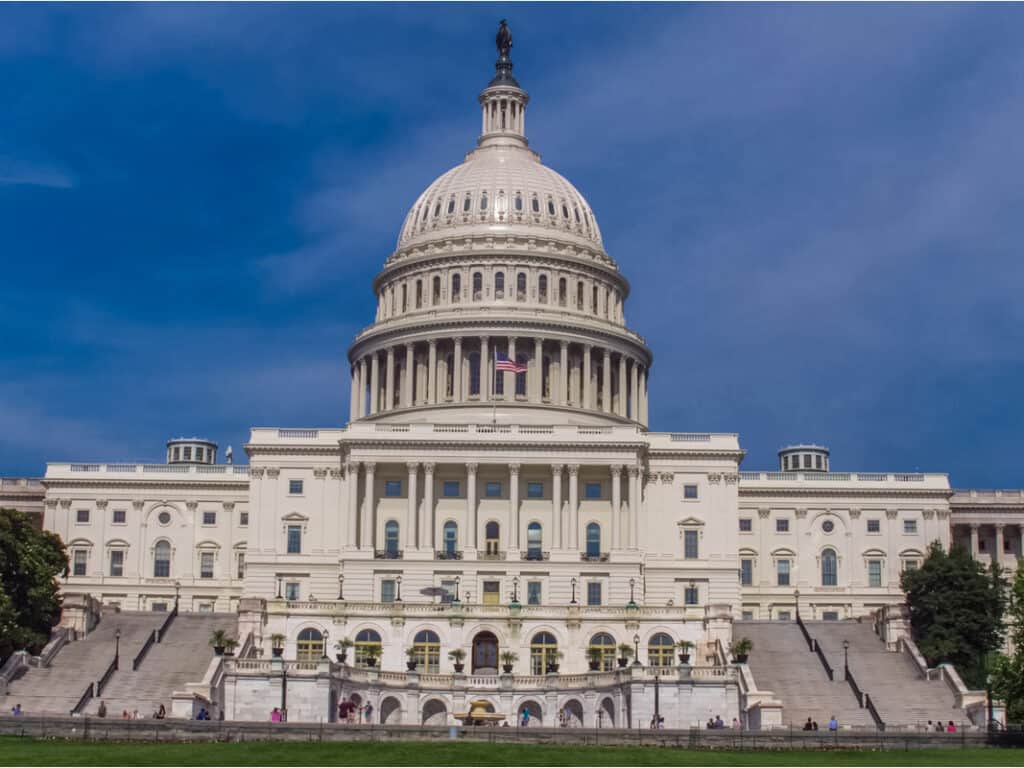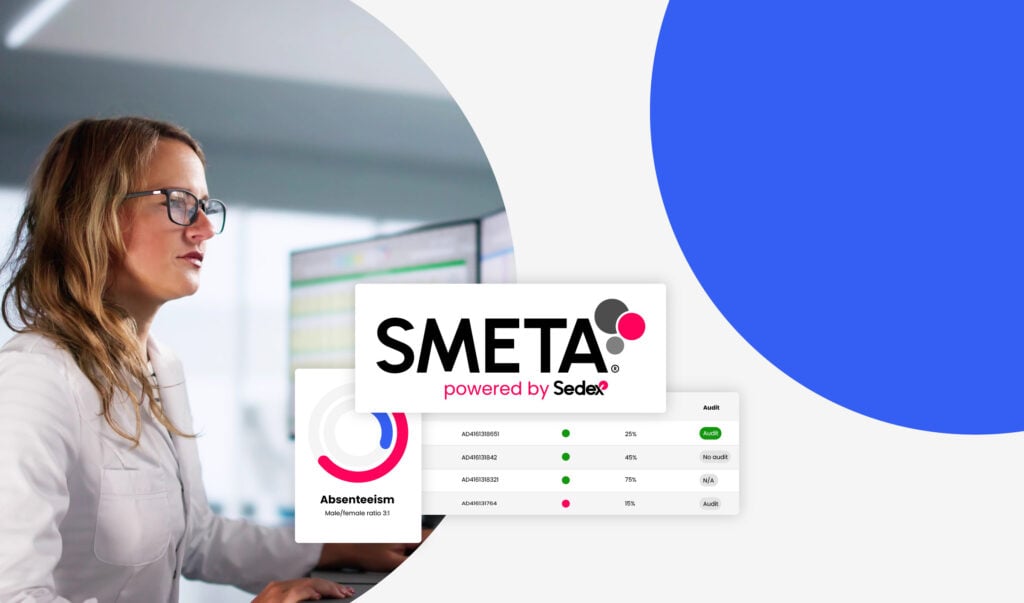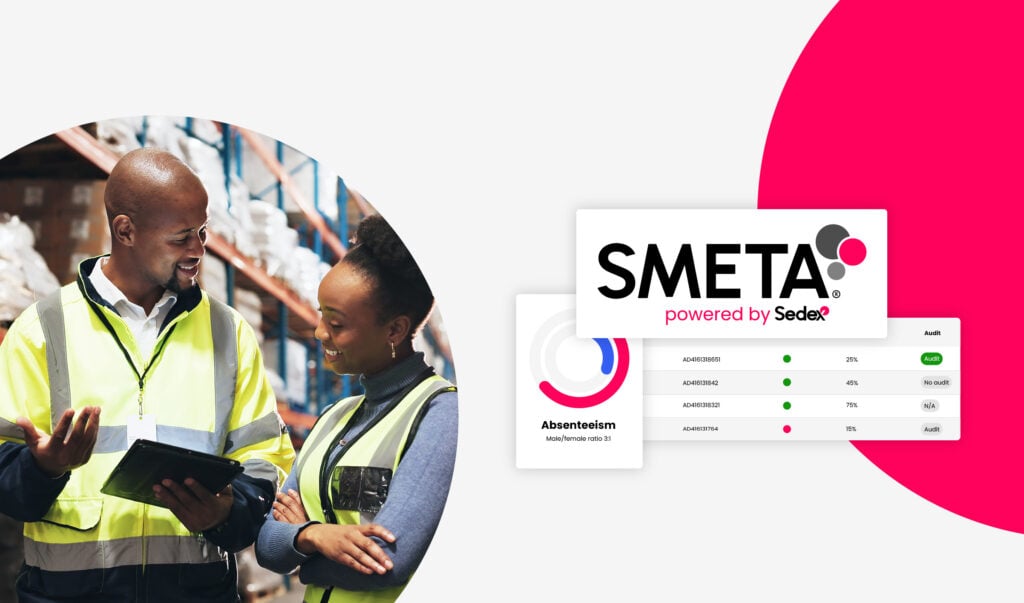What does "Ethically Sourced" Mean?
Learn about this approach to procurement, including how this term differs from others such as “organic” and “cruelty free”.
“Ethical sourcing” definition
Ethical sourcing is an approach to sourcing and supply chains. “Ethically sourced” means that products and services from each point in a business’s supply chain are obtained in an ethical way. This includes companies actively upholding labour rights, safe working conditions, business ethics and more as they purchase products from suppliers.
The further you go down your supply chain, the less visibility you have over ethical risks, like poor working conditions and child labour. So, it’s important to have good visibility of each phase of your supply chain and have an ethical sourcing policy to guide your procurement activities.
For a product or service to be ethically sourced, it means operations and practices across its supply chain meet certain ethical standards. For example, that your organisation, your direct suppliers and those elsewhere in your supply chain provide decent work and fair wages.
Companies that source ethically take responsibility for the impact that their purchasing decisions may have on the people and communities of their supply chains.
How does this differ from responsible or sustainable sourcing?
There isn’t an official, agreed-upon distinction between the terms “responsible sourcing”, “ethical sourcing” and “sustainable sourcing”. Many people use these terms interchangeably to mean that products and services have been obtained through ethical, environmentally sustainable and socially conscious ways.
The term “ethical sourcing” focuses on social concerns and working conditions within supply chains, and may not include environmental areas. Sustainable sourcing tends to focus on the environmental impacts of a supply chain.
Responsible sourcing is an umbrella term that usually refers to aspects of both ethical and sustainable sourcing.
The benefits of ethical sourcing
Sourcing products and services in an ethical way supports successful, sustainable, resilient business. Benefits include:
- Manage social risks and drive positive impacts. Ethical purchasing decisions help to reduce supply chain risks such as forced labour, low safety standards, and poverty wages. In reducing these risks, companies support positive impacts in supply chains. Examples include paying prices that enable suppliers to pay living wages, and ensuring workers have the right safety equipment to protect them from injuries.
- Drive operational efficiencies. Good ethical standards can bring productivity savings and other operational efficiencies. For example, ensuring better health and safety for workers reduces injury-related costs and absences1.
- Build supply chain resilience. Happy, healthy, well-paid workers are likely to be more productive2 – and treating workers well helps to retain skilled and experienced staff.
- Comply with legislation and avoid penalties. Several countries have laws to drive ethical business practices, such as Modern Slavery Acts, anti-corruption laws and import bans for goods made with forced labour. Many of these laws involve harsh penalties – for example, under Germany’s Supply Chain Due Diligence Act companies could be fined up to 2% of their annual global turnover.
- Enhance and protect corporate reputation with investors, consumers and employees by demonstrating a company’s commitment to ethical, socially sustainable practices.
Ethically sourced products vs. Fairtrade, organic and cruelty-free
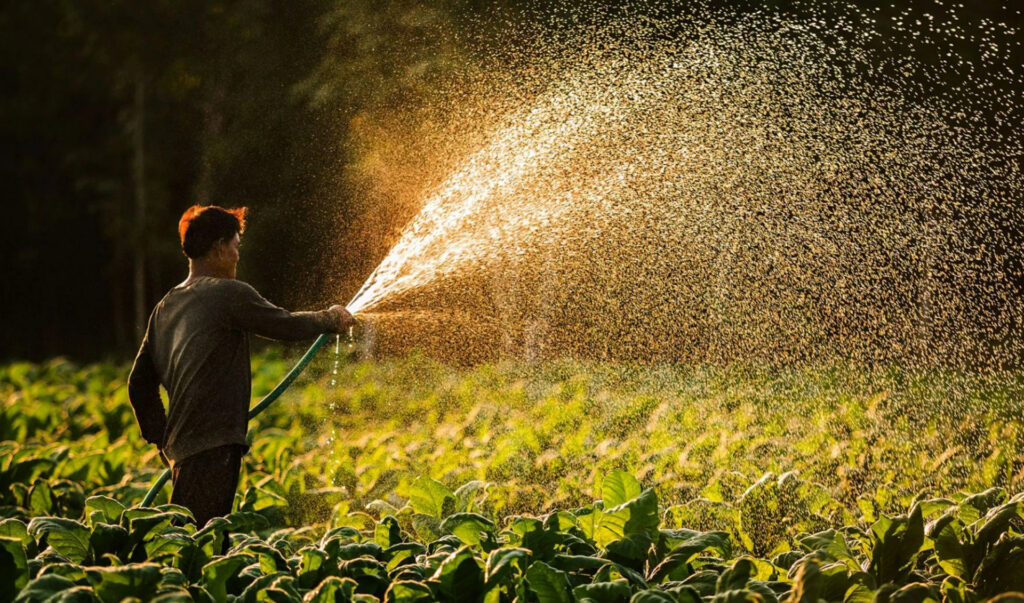
It’s increasingly common to see companies marketing their products and services as ethically sourced. This is a particular trend in industries like clothing, diamonds, coffee and palm oil, which have well-known histories of unethical practices and poor working conditions. But with so many product labels that sound similar to “ethically sourced,” it can be hard to understand what each term means.
It’s important to know the difference between each of these labels, in order to use them correctly, scrutinise what other businesses say and communicate accurately (including to consumers).
For example, a makeup product may be labelled as cruelty-free, which usually means it hasn’t been tested on animals. This term typically doesn’t cover labour rights and the working conditions of the people involved in making a product.
Here’s what each of these terms mean and how they’re typically used:
- Ethically sourced isn’t a coined label with a standard legal definition. There’s no official institution approving its use in consumer marketing. Because ethical sourcing isn’t a term from an institution with a specific set of standards, it can encompass a wide range of ethical considerations.
- Fairtrade is a global certification system for farmers and workers used in almost 80 countries. Companies can only receive and use Fairtrade certification for products that meet Fairtrade’s social, economic and environmental standards for their production and supply chain.[1]
- The term cruelty-free is often used by personal care or cosmetic companies to say that the product and its ingredients weren’t tested on animals. It doesn’t necessarily mean that a product is vegan, or that good labour conditions are guaranteed in the supply chain. In many countries, like the United States, there’s no standard legal definition of “cruelty-free”, and no institution approving its use in consumer marketing.[2]
In the European Union (EU), selling products that have been tested on animals or that have ingredients that were tested on animals was banned in 2013, making the label “cruelty-free” redundant.[3]
- Organic has many different definitions depending on the product and the source. In the US, the label “organic” is governed by the United States Department of Agriculture (USDA).
To use the term on products being sold in the US, companies must meet federal standards for growing and processing foods. These cover areas like soil quality, animal raising practices, pest and weed control, and use of additives.[4]
The EU also has its own standards for the “organic” label.[5] Unlike “ethical sourcing”, the term “organic” usually never refers to working conditions or labour rights.
Ethical sourcing legislation
Many countries have established their own legislation for ethical sourcing. These include the EU, the UK, Australia, India, Norway, Switzerland and California in the US.
The UK became a leader in ethical sourcing legislation by introducing the UK Modern Slavery Act in 2015. This law sets legal requirements for companies to identify, prevent and mitigate modern slavery in their own operations and supply chains.
While the US is behind Europe in this sort of legislation, California passed the California Transparency in Supply Chains Act in 2010. This requires large retailers and manufacturers doing business in California to annually report on how they address modern slavery risks in their supply chains.
How to source more ethically
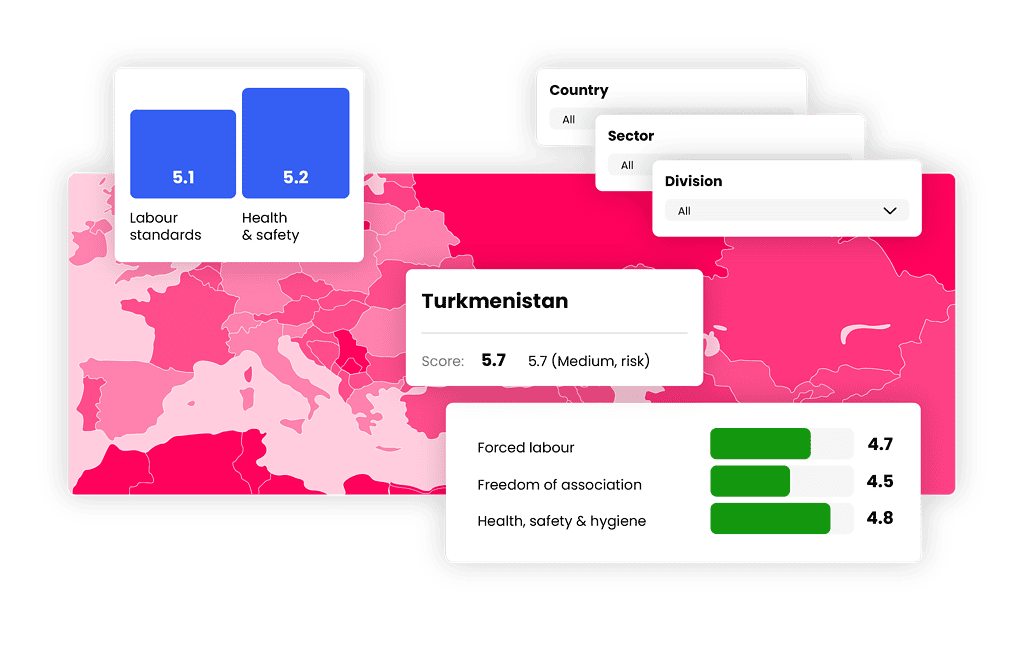
Ultimately it comes down to due diligence, having an ethical sourcing policy, and putting this into practice. This means assessing your suppliers to understand and address the ethical risks and impacts in your supply chain. For example, if you are buying palm oil, it’s known that there are certain high risks in that industry. Particular regions or countries with less legal protection for workers present higher inherent ethical risks.
After identifying the parts of your supply chain with higher risks, focus on understanding employment conditions and workers’ experiences at sites in those parts. You can do this with activities including risk assessments, supplier self-assessment questionnaires, on-site social audits like SMETA and other tools to gather workers’ anonymous feedback.
Once you have collected this data, you can analyse and compare it to identify ethical issues at individual sites. Work with suppliers, using guidance from SMETA Corrective Action Plan reports and other sources, to improve conditions for workers.
How Sedex can get you started with ethical sourcing
Sedex empowers businesses to understand ethical risks in their supply chains, address these and drive better conditions for workers.
Our tools and services include:
- Sedex’s Self-Assessment Questionnaire (SAQ) gathers data about activities, working conditions and work sites from businesses.
- Our risk assessment tool helps you assess ethical risks across your supply chain. Study inherent risks in relevant countries and sectors and build custom risk profiles for every work site that you have data for.
- Our ethical data platform allows you to access, store, share, analyse and report on supply chain information, including data from the above tools.
- If you aren’t sure where to begin, the Sedex Consulting team can help you identify your risks and develop a plan.
Getting started with ethical sourcing?
[1] Fairtrade Standards from Fair Trade America
[2] U.S. Food & Drug Administration on Cruelty Free Cosmetics
[3] Eco Mundo on Using the Cruelty Free Logo in Europe
[4] U.S. Department of Agriculture on the organic label
[5] European Commission on the organic logo

